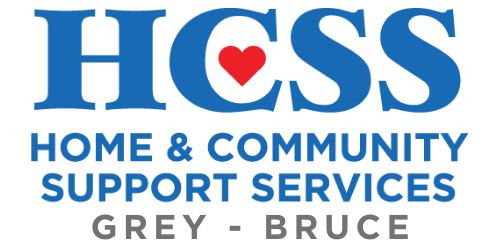Did you know that nearly one in four seniors struggle with food insecurity, making it hard to maintain a healthy diet on a budget? And in a time of rising inflation, it’s definitely getting more challenging. From budget-friendly grocery shopping tips to maximizing local food assistance programs, we’ve got the “goods” to support your well-being without breaking the bank.
Why Healthy Eating is Important for Seniors
Maintaining a nutritious diet is crucial for seniors to stay healthy. As you age, your body’s nutrient requirements change, making meal planning an essential part of your routine. Though you may need fewer calories as you age, the quality of the food you eat is even more important to staving off conditions like high cholesterol and heart disease and healthy aging. Eating healthy means staying hydrated and consuming a variety of foods rich in vitamins, minerals, and antioxidants can help prevent chronic diseases and boost your immune system.
Choosing Healthy Foods: Tips for Seniors
Limiting trans fats, saturated fat, sodium and added sugars, often found in processed foods, while loading up on healthier, unprocessed options, can also give you more energy. While it may seem that processed foods are cheaper you’ll pay a hefty “price” when it comes to your health: processed foods are linked to an increased risk in developing hypertension, diabetes, certain cancers.
Important Nutrients you Need and Budget-Friendly Options:
Calcium is essential for maintaining strong bones and teeth and preventing osteoporosis. It also plays a crucial role in muscle function, nerve transmission, and blood clotting. Budget-friendly calcium-rich foods include leafy greens (e.g. spinach, kale and collard greens), fish such as sardines , nuts and seeds, and dairy such as yogurt, milk and cheese.
Vitamin B12 is needed for nerve function, red blood cell production, and DNA synthesis. Foods rich in B12 include eggs, tuna, clams, sardines, fortified nutritional yeast, beef and liver.
Protein: is essential for growth, tissue repair, enzyme function, and maintaining a healthy immune system. You can ensure you’re eating enough protein by consuming: cottage cheese, Greek yogurt, lentils, eggs, nuts and seeds, fish, poultry, soy beverages, legumes (black beans, chickpeas) and lean beef.
Vitamin B6 is involved in brain development, neurotransmitter production, and immune function. Foods rich in B6 include: sunflower seeds, bananas, salmon, tuna, chicken breast and pork.
Potassium helps maintain proper fluid balance, nerve function, and muscle contractions. Foods rich in potassium include: bananas, sweet potatoes, avocado, yogurt, oranges, black and kidney beans, spinach and oranges.
And speaking of fluids, make sure you aren’t dehydrated and are drinking enough water daily as water protects joints and tissues, helps to excrete waste, aids in digestion and boosts mood and cognitive function among its many benefits!
Eating Well Just Got Easier!
Supplemental nutrition assistance programs like HCSS’s Meals on Wheels service follow Canada’s Food Guide, offers meals containing all food groups and can help you meet your dietary needs at a modest cost. The best part? Meals are delivered right to your door by friendly HCSS staff and volunteers.
Budget-Friendly Grocery Shopping Tips
To ensure you shop economically for nutritious foods, prioritize purchasing affordable whole foods rich in essential nutrients for your diet. Smart shopping starts with planning your meals ahead of time and creating a shopping list based on what you need.
- Look for sales, discounts, and coupons to save money on items like fruits, vegetables, lean proteins, whole grains, and dairy products. Buying in bulk or choosing frozen or canned options can also be cost-effective.
- Compare prices between different stores and consider shopping at local farmers’ markets or discount stores for fresh produce at lower prices. Remember to check unit prices to get the best deal and avoid impulse purchases. By being mindful of your choices and planning wisely, you can eat healthily on a budget.
- To cook healthy meals on a budget, consider planning your weekly menu in advance to make the most of affordable ingredients. Look for budget-friendly recipes that use simple, nutritious ingredients like beans, lentils, and seasonal vegetables.
- Cooking in batches and freezing leftovers can also help you have ready-to-eat meals on hand, saving you time and money. Additionally, using versatile ingredients like whole grains and eggs can help you create a variety of nutritious dishes without breaking the bank.
Stay committed to your health and well-being, and you’ll be on the path to achieving a healthy diet and aging well!

